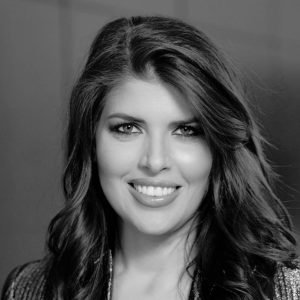A Sharper Eye on Global Business Deals
The European Union has turned its attention once again toward foreign investments — and this time, the focus is back on the United Arab Emirates. In a renewed effort to examine major international mergers under its Foreign Subsidies Regulation (FSR), the EU has launched its second in-depth probe into a business deal involving UAE interests. While some may view this move as a challenge, others see it as recognition — a sign that the UAE’s role in the global investment landscape is too big to ignore.
The FSR, which came into effect in July last year, was introduced to ensure that subsidies granted by non-EU governments do not distort competition within the EU’s internal market. And for the second time in a matter of months, regulators are scrutinising a merger involving capital linked to the UAE — signaling that Europe is paying closer attention to how international finance intersects with internal market rules.

Why the UAE Is in the Spotlight
It’s not hard to see why UAE investments have caught the EU’s eye. Over the past decade, the country has steadily transformed itself into a global business powerhouse. From sovereign wealth funds to large-scale investments in energy, logistics, and technology, the UAE’s financial presence stretches far and wide.

What makes the UAE unique is its strategic approach to global partnerships. Unlike speculative investors, the UAE often pursues long-term plays — acquiring stakes in essential infrastructure, logistics platforms, and high-growth industries. These moves are carefully planned, deeply researched, and highly capitalized. For the EU, this level of influence demands a closer look under the FSR framework.
What the Merger Probe Means
At the heart of the EU’s renewed probe is the idea of fairness. European regulators want to ensure that foreign financial support doesn’t give companies an unfair advantage during mergers or acquisitions in Europe. If one company receives significant subsidies from a non-EU country, it could potentially outbid or outperform its rivals — not because it’s more efficient or innovative, but simply because it’s better funded.
The EU isn’t saying that foreign investment is unwelcome — far from it. In fact, the bloc continues to rely heavily on international capital to drive innovation and growth. However, it wants to ensure that all players, foreign and domestic, compete on a level playing field.
The second in-depth probe under the FSR is, therefore, a continuation of this philosophy. It sends a message that Europe is serious about transparency and accountability, no matter how powerful or prestigious the investor may be.
Reactions from the UAE Business Community
Inside the UAE, this renewed scrutiny has sparked a wave of conversations. Investors and business leaders are watching closely, but not with fear — rather, with calculated optimism.
Many see the EU’s focus as a sign of the UAE’s growing global relevance. To be the subject of not one, but two major EU merger probes within months is, in its own way, a mark of recognition. It means that the UAE’s capital is no longer viewed as peripheral — it’s central to the future of many European industries.
Others view the scrutiny as an opportunity for better alignment. If the EU and UAE can find common ground on regulatory frameworks, it could pave the way for even more streamlined, transparent investment pipelines. Rather than pushing capital away, these regulations could help shape a stronger foundation for future cooperation.
A Turning Point for Global Capital Flows
This isn’t just about one merger or one country. It’s about how the world is changing — and how regulatory systems are catching up.
In a world where capital moves faster than ever, traditional rules of engagement are evolving. Sovereign wealth funds from the Gulf, including the UAE, are becoming essential sources of funding for Europe’s energy transition, technology infrastructure, and transport networks. These aren’t just silent partners. They’re active stakeholders with a long-term vision and the financial firepower to see it through.
That kind of influence naturally invites questions. It demands a conversation about fairness, transparency, and shared values. And that’s exactly what the FSR is trying to do.
The EU isn’t turning away from global capital — it’s trying to make sure that capital serves the broader interests of its people and its economy.
Challenges and Possibilities Ahead
Still, the road ahead may not be entirely smooth. Regulatory probes can delay deals, introduce uncertainty, and even lead to the blocking of mergers. For companies on both sides of the table, that can be frustrating. However, those who navigate it wisely may emerge stronger.
The UAE’s investment entities are no strangers to scrutiny. They’ve dealt with regulatory regimes from the United States to Southeast Asia. And each time, they’ve shown a willingness to engage, adapt, and operate within local norms.
What’s happening now with the EU may be another step in that journey — not a setback, but a milestone.
Setting a New Standard for Engagement
This new wave of regulatory focus could also inspire a broader dialogue between the EU and the UAE — one that goes beyond individual mergers and probes. There’s room here for the creation of more formal cooperation channels, clearer guidelines for foreign investment, and mutual frameworks for understanding how subsidies work in different economic models.
In a world that’s increasingly interconnected, these kinds of partnerships are more than symbolic. They’re essential.
Both the EU and the UAE stand to gain. Europe secures fairer, more transparent market dynamics. The UAE gets deeper access to strategic industries and stronger trust from European counterparts. In many ways, this could mark the beginning of a more structured and collaborative chapter in their economic relationship.
The Bigger Picture: Mutual Growth, Mutual Respect
Beyond policy and paperwork, this is a human story too. Behind every merger are the teams of visionaries, strategists, and workers who build the businesses we rely on. Ensuring that they operate in a fair, balanced system matters — not just for profits, but for people.
This in-depth probe may seem like a legal exercise, but it’s ultimately about building trust across borders. It’s about ensuring that companies, no matter where they’re from, are treated fairly and held to high standards. And in that sense, it’s a step forward.
In the end, the renewed focus on UAE investments is a sign of progress — not a barrier. It reflects the UAE’s rise as a key global investor and the EU’s commitment to protecting its internal market. Together, these forces have the potential to shape a new kind of global economic partnership — one built on transparency, respect, and shared prosperity.
Do follow UAE Stories on Instagram
UAE’s Indian Expats to Cash in as Rupee Falls to Lowest in 6 Weeks















